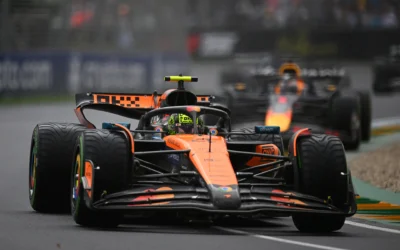Ferrari have reportedly completed the first runs on the test bench with their 2026 engine, aiming to start the next regulations at the front. For the Italian outfit, the upcoming regulation changes will be crucial.
Everyone in Formula 1 recognised the advantage Red Bull has over the chasing pack. Heading into next season, it will take a huge recovery from Ferrari, Mercedes or McLaren to erode their advantage.
As Maranello, huge amounts of effort are being invested into turning the tide. Fred Vasseur’s personnel are working diligently with their 2024 challenger in a bid to avoid the limitations of the SF-23.
Although Ferrari’s late-season form was relatively encouraging, it is difficult to predict how successful they will be.
A step forward is expected with next year’s project, but time is undoubtedly against the Scuderia. F1’s budget cap and financial restrictions punish teams who start off slowly and reward those who begin on the right foot.

With this in mind, Ferrari’s engine development for 2026 will be essential. As Red Bull found out in 2014, a poor engine under new regulations can negate any progress made via aerodynamics.
Considering how radically different the 2026 engines will be, they represent a huge challenge. Reliability will almost certainly be far less predictable as teams wrestle to understand and optimise new power units.
First 2026 tests completed
In this respect, Ferrari is working diligently. According to it.motorsport.com, they have already completed their first test runs with their 2026 engines.
Extrapolating this development into any conclusions would be, at best, unwise. However, it shows how seriously Fred Vasseur’s team are taking the next regulations.
With Honda, Ford and Audi joining the field, Championships could be won and lost by power units. This is why Maranello has been crystal clear about hitting its targets in this respect.
Among their rivals, there is speculation that some teams are experiencing delays. Audi, for example, is understood to be slightly behind the pack.
In any case, the next twelve months will reveal more about which teams are already testing their 2026 engines. For now, the Tifosi can take encouragement that progress is already being made.




